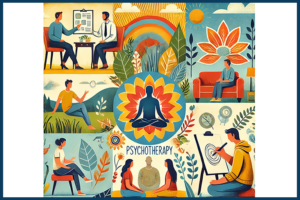The Symptoms of Anxiety: Recognizing the Signs
Anxiety is a natural human response to stress or a sense of danger, but for many, it can become overwhelming and disruptive to daily life. Understanding anxiety symptoms is the first step toward recognizing when anxiety has transitioned from an occasional concern to a persistent issue that may require intervention or support. Here’s a look at the key symptoms of anxiety, why they occur, and ways to address them. Physical Symptoms of Anxiety One of the reasons anxiety can be so challenging to manage is that it doesn’t just stay in the mind; it often manifests physically as well. Here are some common physical symptoms: Increased Heart Rate: When anxious, the body’s fight-or-flight response kicks in, leading to a rapid heartbeat. This can feel like heart palpitations or even mimic symptoms of a heart attack in severe cases. Muscle Tension: Many people carry anxiety in their bodies, often resulting in…









